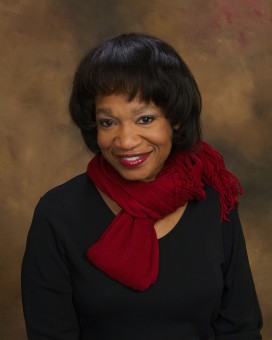College Admission in The Washington Post
Posted on Wed, 02/22/2012 - 21:49College admissions: How diversity factors in
College Admission in the Wall Street Journal
Posted on Tue, 02/21/2012 - 19:24Te Wall Street Journal, February 21, 2012 Should Colleges Be Factories for the 1%? Obama wants the feds to report what a college's graduates earn. That's no way to judge an educational institution. By Robin Mamlet and Christine VanDeVelde In his recently unveiled Blueprint for College Affordability, President Obama calls for "collecting earnings and employment information for colleges and universities, so that students can have an even better sense of the life they'll be able to build once they graduate." In other words, the government wants to publish statistics on what graduates earn after leaving Harvard or Ohio State or Duke. The results are unlikely to surprise. For all the costs of collecting and collating this information—for the sake of reducing the costs of education, no less—it will show what is intuitively obvious: On average, Ivy League grads earn more. But the information will be worse than useless for college-bound students because it will send them all the wrong signals. The Obama administration decries the privilege of the top 1%, yet the president is suggesting that the likelihood of joining that 1% should be a top factor in college selection. That puts the government's imprimatur on the idea that earning potential trumps learning potential—and it runs counter to everything most educators believe in. Earnings power is not a good proxy for educational excellence.
The Neurotic Parent's Guide to College Admissions
Posted on Fri, 02/17/2012 - 01:33We're big believers in finding some humor in the college application process whenever possible. And last week a new book landed on our desks that made us laugh out loud -- The Neurotic Parent's Guide to College Admissions by J.D. Rothman, an Emmy-winning television writer and mastermind of The Neurotic Parent blog. (Full disclosure, she was also a contributor, along with College Admission coauthor, Christine VanDeVelde, to I'm Going to College -- Not You!, edited by Kenyon Dean of Admission Jennifer Delahunty.) We've often remarked that the college application process is like childbirth -- you have to have gone through it in order to really understand it. The mother of two sons, one already ensconced at the college of his choice, and another in the midst of applying, Rothman is an acute observer of the road to the fat envelope, including the bad actors, personal foibles and patent absurdity that can sometimes characterize this process. We recommend you pick up her book if someone in your family is in the midst of this rite of passage.
If I Knew Then... Part 2
Posted on Tue, 02/14/2012 - 18:41 More advice from current college juniors and seniors, as well as recent graduates, about creating a list of schools where you will apply. Take advantage of the 20/20 hindsight of these students and recent grads about what they learned after they arrived on campus.
More advice from current college juniors and seniors, as well as recent graduates, about creating a list of schools where you will apply. Take advantage of the 20/20 hindsight of these students and recent grads about what they learned after they arrived on campus.
Lauren Buchanan, from Los Altos Hills, California, now attending Claremont McKenna College in Claremont, CA, addresses the basics and notes that the "culture" of a school includes things like the laundry facilities!
The best thing you can do in creating a list of colleges is to diversify: small or big, stretch school or safety, etc. It is important to have a wide range to choose from so that you can be absolutely certain you choose the right place.
What Role Does Diversity Play in Admission Decisions?
Posted on Mon, 02/06/2012 - 23:31 As we speak at high schools across the country, we are often asked by students and parents about the role that diversity plays in college admission. As it happens, we are also in the midst of renewed attention to affirmative action, including whether students from some races are actually penalized in the admission process. Jarrid Whitney, Executive Director of Admissions and Financial Aid at California Institute of Technology, joins us today to guest blog about the role diversity plays in the admission process in his experience:
As we speak at high schools across the country, we are often asked by students and parents about the role that diversity plays in college admission. As it happens, we are also in the midst of renewed attention to affirmative action, including whether students from some races are actually penalized in the admission process. Jarrid Whitney, Executive Director of Admissions and Financial Aid at California Institute of Technology, joins us today to guest blog about the role diversity plays in the admission process in his experience:
Admission Committee Scenario:
Hamilton College joins The Gourmet Guide
Posted on Mon, 02/06/2012 - 21:24Check out the latest addition to the Gourmet Guide -- Hamilton College. We've got the recommendations of Dean of Admission Monica Inzer and her staff -- including where to find chocolate chip pancakes, cider donuts, the best breakfast and that always important great cup of coffee. Check it out here.
Hamilton College Joins the Gourmet Guide
Posted on Mon, 02/06/2012 - 20:56New York State
Chat Leonard, Metro Academic and Classical High School
Posted on Thu, 02/02/2012 - 18:01 Chat Leonard is Director of College Counseling at Metro Academic & Classical High School, a magnet school in the St. Louis University neighborhood of St. Louis, Missouri. She joined the administration of the school she calls "one of the gems of the St. Louis public school system" last year, after 13 years as a College Counselor at Clayton High School. Named one of the top 100 public schools in the nation by Newsweek magazine, Metro prides itself on its diverse ethnic and socioeconomic student body, where 50% of the 326 enrolled students are African American who live within the St. Louis city limits. In Ms. Leonard's first year as Director, 100% of her students went on to attend four-year colleges.
Chat Leonard is Director of College Counseling at Metro Academic & Classical High School, a magnet school in the St. Louis University neighborhood of St. Louis, Missouri. She joined the administration of the school she calls "one of the gems of the St. Louis public school system" last year, after 13 years as a College Counselor at Clayton High School. Named one of the top 100 public schools in the nation by Newsweek magazine, Metro prides itself on its diverse ethnic and socioeconomic student body, where 50% of the 326 enrolled students are African American who live within the St. Louis city limits. In Ms. Leonard's first year as Director, 100% of her students went on to attend four-year colleges.
J. Robert Spatig, University of South Florida
Posted on Wed, 02/01/2012 - 22:01 J. Robert Spatig, Director of Admissions at the University of South Florida, joins us to answer five questions this month -- and even treated us to a bonus sixth answer!
J. Robert Spatig, Director of Admissions at the University of South Florida, joins us to answer five questions this month -- and even treated us to a bonus sixth answer!
A public research university, USF is located in the Tampa Bay region of the Sunshine State, home to the NCAA Division I Bulls and one of the nation's top centers for the advancement in research of treatments for Alzheimer's, Parkinson's andHuntington's diseases. Join Spatig here to learn more about the students and the admission process of this incredibly diverse university that enrolls more than 47,000 students across four campuses.
Can You Negotiate Merit Aid?
Posted on Tue, 01/31/2012 - 16:59 Financial aid -- need-based and merit -- is much on the minds of students and parents these days. As we get questions on these subjects, we will be posting responses here as blog post when we feel they may be helpful to a range of our readers Today we answer one of our readers who posed this question in response to an earlier post titled "Can You Negotiate Merit Aid?"
Financial aid -- need-based and merit -- is much on the minds of students and parents these days. As we get questions on these subjects, we will be posting responses here as blog post when we feel they may be helpful to a range of our readers Today we answer one of our readers who posed this question in response to an earlier post titled "Can You Negotiate Merit Aid?"
Darryl wrote: St.John University offered my son a 10k merit award. He also was accepted to Howard University. His first choice is Howard. Can I use the 10k merit award from St. John University as a bargaining chip so Howard could match or make a counter-offer?
Different colleges will handle this differently. Some schools will be flexible. For other schools, merit aid awards are final and non-negotiable, as noted by Purdue University's Pamela Horne in the article in this post.
However, colleges usually welcome all information about a student's financial situation. So it doesn't hurt to ask. But how you approach the college is key.







